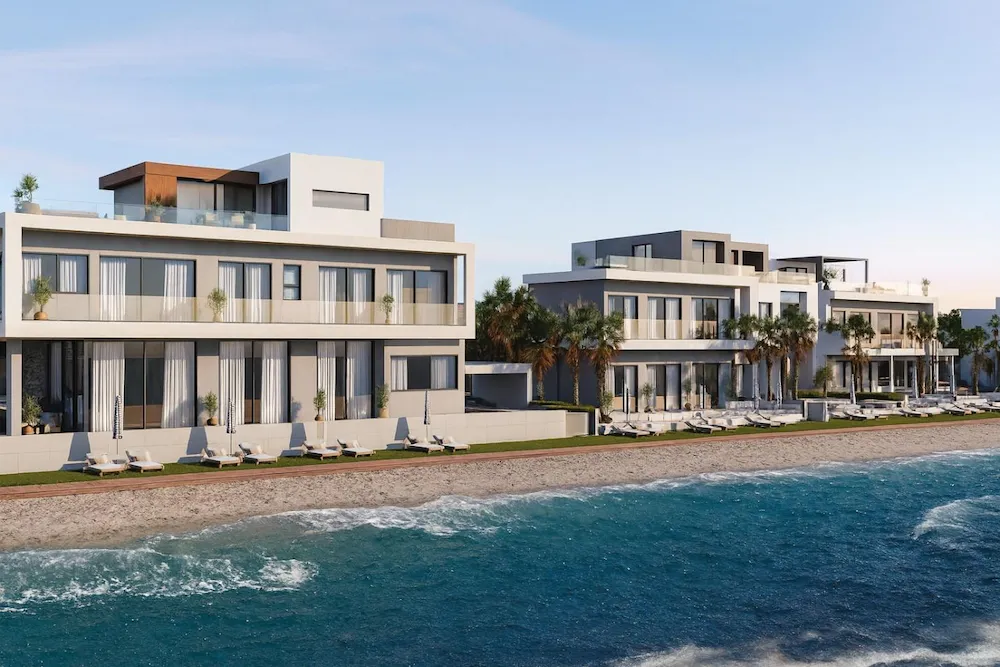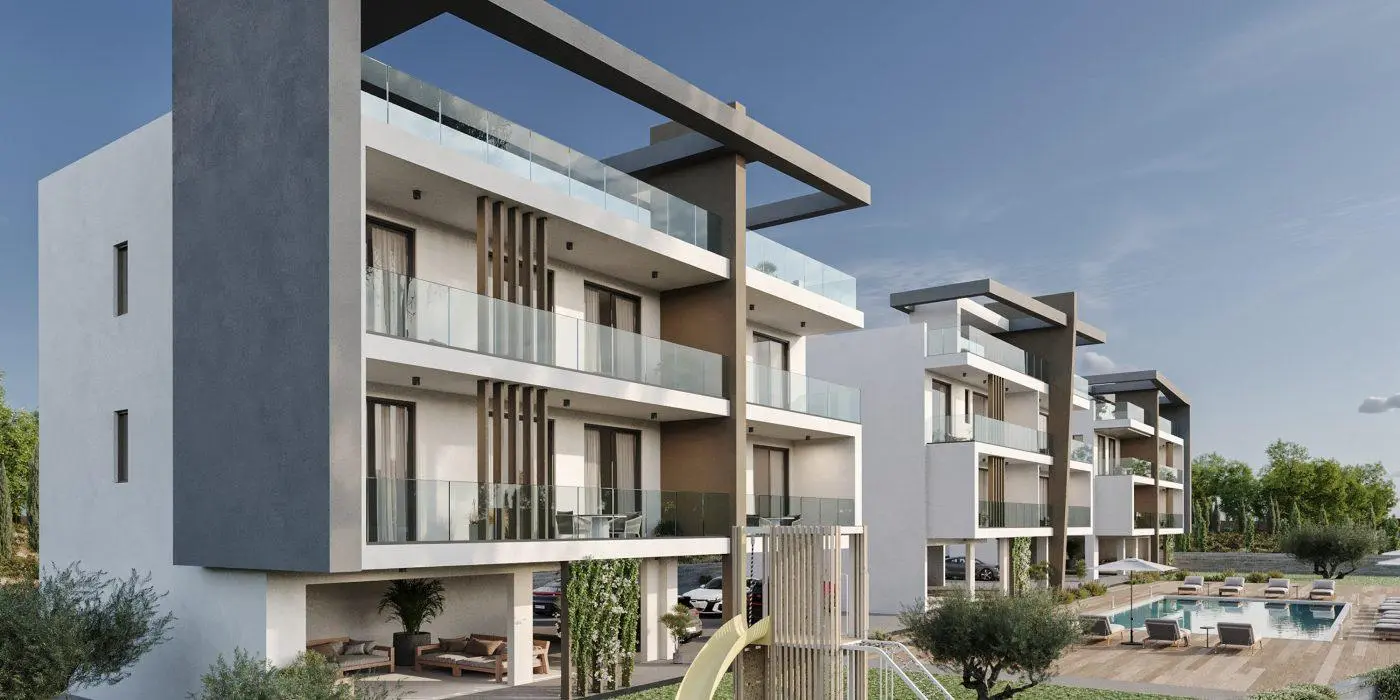Cyprus Property Yields: A Comparison with Other EU Countries

Content
Cyprus confidently ranks among the most profitable real estate markets in Europe, offering a clear entry point, stable tenants, and strong capital appreciation potential. Let’s examine how profitable investment in Cypriot property really is compared to other EU countries, considering key factors such as rental yield, taxation, and risk.
What Is Property Yield
It’s important to understand that yield is not only the rental income itself, but the total return an investor receives from owning a property.
There are three main indicators:
- Gross Yield: annual rental income ÷ purchase price × 100%.
- Total Return: includes both rental income and the capital appreciation of the property over time.
- Net Yield: gross yield minus taxes, management fees, insurance, and vacancy losses.
Property Yield in Cyprus in 2025
According to Global Property Guide, the average rental yield on residential property in Cyprus ranges between 4.7% and 8% annually. A study Global Property Guide conducted in March 2025 showed an average gross yield of 5.09%, depending strongly on the type and location of the property.
| Property Type | Average Yield | Comment |
| Apartments | 5–7% | high rental demand, low entry threshold |
| Villas and houses | 3–6% | higher purchase cost but steady price growth |
| Short-term rentals (Airbnb) | 6–8% | particularly profitable in tourist areas |
According to the Cyprus RICS and KPMG report, in the second quarter of 2025, the average gross yield was as follows:
| Property Type | Average Yield, Q2 2025 |
| Apartments | 5.41% |
| Houses | 2.97% |
| Retail premises | 5.75% |
| Warehouses | 4.24% |
| Offices | 5.61% |
| Holiday apartments | 5.75% |
| Holiday homes | 2.79% |
Comparison: Cyprus and Other EU Countries
To understand the competitiveness of Cyprus’s property market, let’s compare average gross rental yields across Europe. According to Global Property Guide and Eurostat, Cyprus consistently ranks in the TOP-5 EU countries by rental yield.
| Country | Average Yield | Comment |
| Italy | 6–7% | especially in large cities such as Rome, Milan, and Naples |
| Cyprus | 5–6% | strong rental demand in Larnaca, Limassol, Nicosia, and Paphos; low taxation |
| Greece | 4.2–4.8% | growing tourism and strong demand in resort regions |
| Portugal | 4.0–4.5% | popular market, but rising tax burden |
| Bulgaria | 4.3–4.7% | stable market, but limited by low rents and seasonality |
| France | 3–4% | high income tax and maintenance costs |
| Spain | 3.8–6.2% | high competition and rental restrictions in major cities |
Real estate yield in Cyprus sits at the upper end of the European average, trailing only a few specific high-risk or niche markets.
However, all these figures represent average values, which vary significantly depending on:
- region and property type (residential, commercial, or tourist);
- tax regime and maintenance costs;
- housing price trends and tenants’ purchasing power;
- legal stability and rental regulations.
For investors, the key metric is the total return considering not only nominal yield but also net profit after taxes, capital appreciation, and property liquidity.
Why Net Yield in Cyprus Is Higher than Nominal
Even with a gross yield of around 5%, a property in Cyprus can produce a higher net yield than similar assets in Portugal, Bulgaria, or Spain.
The real profit for investors in Cyprus is often higher due to:
- Low taxes: no property tax (Property Tax abolished in 2017); 0% tax on dividends for Non-Dom tax residents.
- Moderate running costs: lower maintenance, insurance, and utility expenses compared to France, Spain, or Portugal.
- Long tourist season: Cyprus is one of the few regions in Europe where the sun, warm sea, and rental demand persist from March to November, allowing property owners to receive a stable income almost year-round.
As a result, net yields for properties in Larnaca, Limassol, Nicosia, and Paphos can reach 5–7% after taxes and expenses, an excellent performance for the European market.
In addition, investors benefit from capital appreciation — prices for new developments and coastal properties in Cyprus grow by 5–8% per year, forming a total return of up to 10% or more.

Factors Influencing Real Estate Yield in Cyprus
- Location: the closer to the sea, the higher the rental rate.
- Rental type: short-term rentals generate higher income but require active management.
- Condition and year of construction: older properties are cheaper to buy but less profitable due to higher maintenance and downtime.
- Infrastructure: properties in modern complexes with elevators, parking, pools, and security are easier to rent and retain tenants longer.
- Tax planning: with the right tax strategy, overall yield can increase significantly.
Why Investors Choose Cyprus
- Foreigners can freely purchase and register property ownership.
- Combining investment with permanent residency (PR) in Cyprus through property acquisition.
- Attractive taxation and strong property rights protection.
- Rapidly developing infrastructure, such as the Land of Tomorrow project in Larnaca.
- Stable tourist flow and high rental demand.
Professional Support by Feod Cyprus
Feod Group accompanies clients at every stage of property acquisition in Cyprus — from due diligence and negotiation of deal terms to contract registration and residency application.
We speak your language, know the local market, and act exclusively in your best interests.
Full “turn-key” assistance from your first consultation to receiving the keys!
Schedule a meeting at our Larnaca office or get an online consultation.
Book a consultation
Contact us
For enquiries please fill in the form below. Our consultants will contact you with the details.
Griva Digeni 49, Chrystalla Court 1st Floor Office 11, 6036 Larnaca, Cyprus
11B Lyuteranska St., off. 23, 01024


